Today is my birthday and a gift for myself is letting you know about my good friend Charlie Hoehn’s new book, Play It Away.
This is marketing month on OkDork and we’ve already featured these posts:
How to Grow a Blog to 100,000 Visitors in Less Than a Year
How to Create a Marketing Plan
I first met Charlie while he was filming a video for a friend of mine and I got cold water thrown on my face. I remember Charlie throughout all my interactions as having an amazing attitude and always reliable.
When Charlie’s book came out I wanted to let you know about it and asked him to share how he’s helped some of the top authors in the world to get to #1 on Amazon.com. Below you’ll find some very actionable steps and methods to successfully market your own book.
Enter Charlie
Every author I meet wants to hit #1 — on Amazon, New York Times, Wall Street Journal, USA Today… Without fail, each and every one of them says they want to dominate the charts.
It’s understandable. Hitting #1 is no small feat. In addition to outranking the 11 MILLION books on Amazon, you’re also beating out whatever current “outlier” titles (e.g. Steve Jobs, Twilight, etc.) are dominating the charts during your launch.
But even if you knock your launch out of the park and manage to hit #1, the unfortunate reality is that — for most authors — topping the charts is a poor measure of success, and an increasingly ineffective promotional strategy.
In this post, I’m going to show you how to hit #1 on Amazon (I’ve worked with two authors — Ramit Sethi, Tim Ferriss — who did this). Then, I’m going to show you a better strategy — the sustainable way.
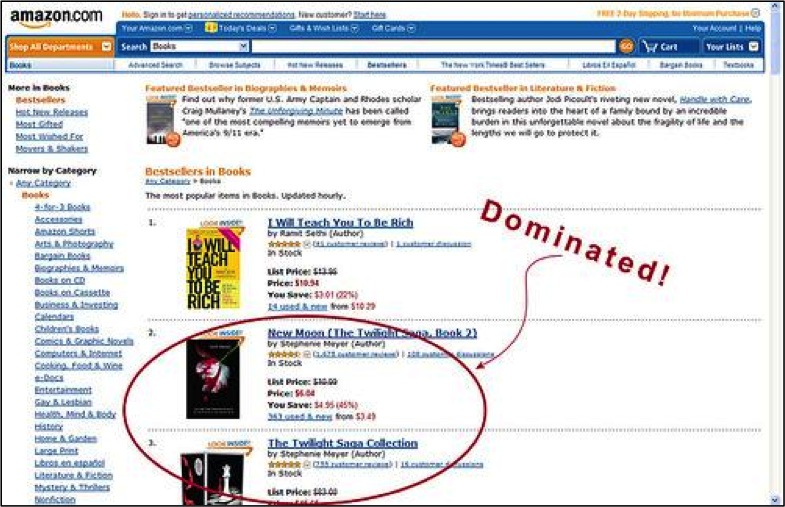
Ramit Sethi hitting #1 in 2009

“How many books will I need to sell?”
In order to hit #1 on Amazon, you’ll need to sell somewherebetween 3,500 and 5,000 copies in 24 hours.
Want to hit top 10? You’ll need to sell roughly 300 for print, or 2,000+ copies for combined formats. Those numbers aren’t exactly set in stone, but they’re a pretty close approximation.
If that doesn’t scare you away from the “Let’s hit #1!” strategy, let’s break it down further…
Imagine you’re an author with 100,000 email subscribers(!), and a few dozen friends who all want to buy your book. You’ve been doing a good job getting your readers excited for your launch, emailing them 1-2 times a week to build anticipation.
Let’s say 40% of your 100,000 subscribers actually open your email to buy your new book.
Of the 40,000 who open, maybe 10% will click the link to see the offer.
Of the 4,000 who click the link, maybe 10% actually buy.
That’s right. You’re down to 400 customers — a 4% conversion rate.
So you’re still at least 3,100 book sales left to be #1 on Amazon.
Rats!
Want to know what’s crazy? It takes about 5X more sales to top the New York Times bestseller list, AND your book needs to be selling nationwide at physical retail outlets (Barnes & Noble, Costco). Oy.
The problem with the “Let’s hit the list” charade is that you’re pinning the perception of your book’s success on a single day of sales. That’s a ton of unnecessary pressure and wildly unrealistic expectations for any author!
So often, we (authors and entrepreneurs) get caught up in the adrenaline rush of having instant success. The initial splash we make during our launch feels like everything.
THE GAME IS ON THE LINE!! IT’S NOW OR NEVER!!
Actually, it’s not.
That’s the most important lesson you can take away from this post: A big launch is NOT a strategy.
Even if you get lucky and hit #1 on Amazon and #1 on New York Times… so what? That’s just a single day (or week) of sales. That doesn’t guarantee future success.
You should stay focused on a much more sustainable metric: AVERAGE SALES PER WEEK.
That’s not to say you shouldn’t TRY to sell a lot of books on launch day; it’s simply to say that — if you have a lackluster launch — DON’T WORRY! You can still do really well over the long run.
Want to know how? Here’s the secret:
Create an amazing book that you know people will want to buy, then set up marketing machines that can automatically sell your book for the next 5 to 100 years.
Let’s find out how to do just that.
# # #
Step 1. Get proof that readers will BUY your book
Did you know that Fifty Shades of Grey — a series that’s sold 90 million copies over the last three years — started off as an episodic series on a Twilight fan fiction site?
It’s true: E.L. James took the characters from Twilight, wrote a bunch of stories about them doing sexy things with each other, then called the series “Master of the Universe.” Stephanie Meyer even commented on the series (“That’s really not my genre, not my thing… Good on her — she’s doing well.”)
James removed the stories from the fan fiction site, published it to her own site — fiftyshades.com — then renamed the characters to Christian Grey and Anastasia Steele. The rest is history.
There’s a SUPER important lesson here, which I wish every author, artist, and entrepreneur would learn so they could save themselves from years of heartbreak and failure. That lesson is…
VALIDATE YOUR IDEA! MAKE SURE PEOPLE WANT TO BUY WHAT YOU’RE MAKING!
In order to hit #1 on the bestseller list, your book has to deliver an amazing experience that 1,000 people will readily pay money for.
Most authors do the total opposite. They spend months or years working on some masterpiece, without ever realizing that they’re making something that’s UN-BUYABLE. Then they come to me, asking me to read their work,, and I have to say “I don’t know anyone who will willingly pay for this.”
E.L. James, on the other hand, did it the smart way. She took a concept with enormous demand — the Twilight series — made it sexier, then gave it to the audience she knew would love it. She emulated a winning formula (and ultimately surpassed Twilight’s mega success), because she knew that women were spending money on that type of book already. And now, there are countless authors drafting behind James’ lead in the adult erotica genre.
The approach I took was a little different, but the principle was still the same.
I posted an essay on my blog called How I Cured My Anxiety in May 2013. It blew up. More than 100,000 people read it, I got hundreds of messages from people around the world, and it hit the #1 result on Google for the search “cure anxiety.” A few months later, I thought to myself, “Wait a minute… people might want more information!” So I put up a form, asking if anyone was interested in buying a book on the topic if I ever decided to write one. Over 100 people signed up within 48 hours. By
the end of the month, I’d collected 1,000 email addresses.
Ding ding ding! The idea was validated, and I had proof that people wanted to BUY the book before I started making it.
It’s not enough to write a great book; You have to know what your target audience wants to buy. And if there are a ton of people buying one type of book (Sexy vampires!), it’s much more likely that they’ll buy a variation of it (Sexy vampires having sex!).
Make sure the demand for your book is strong enough that people are willing to pay for it, before you start making it. There’s a very easy way to do this:
Read the 5-10 most popular books in your chosen category, and figure out why people love or hate them (i.e. read the reviews).
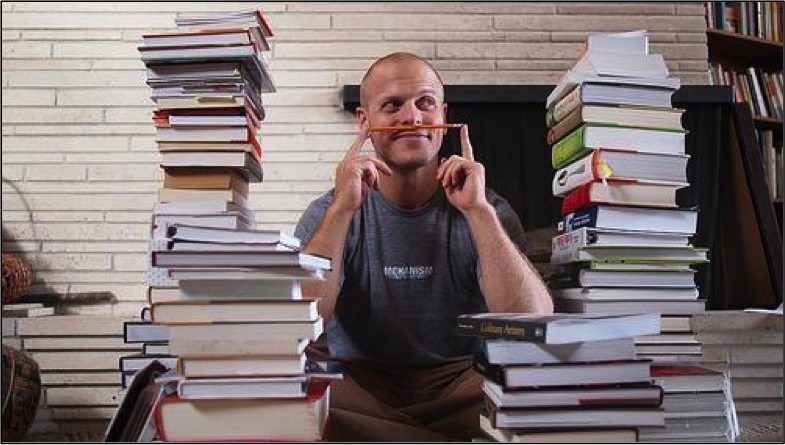
Before Tim Ferriss started writing The 4-Hour Chef, he read and took notes on about 50 cookbooks.
Once you’ve developed an understanding of the books that people are ACTUALLY BUYING, you’ll be able to create something unique or superior that those audiences will want to buy.
Emulating successful books doesn’t mean you have to compromise your artistic integrity. It doesn’t even mean you’re an idea thief (trust me, NO ONE is original). Emulation is just a smarter way of doing things. It’s working within the framework that’s already established in the minds of your target audience — it’s giving them something they’re familiar with, and comfortable with buying. When you do that, you not only make them happier, you also dramatically increase your odds of succeeding
as an author.
Step 2. Design the book YOU would love to read
“I just write what I wanted to write. I write what amuses me. It’s totally for myself.” – JK Rowling
You better be a HUGE fan of your own book, because you’re going to be 100% in charge of marketing it. That’s your job.
And if you produce a sloppy book that you don’t really believe in, it’s going to be really difficult and clumsy for you when you try to tell everyone to buy it. So to add to the previous tip (write a book people want to buy) is to write the book that YOU want to read.
But before you start writing your book and acting all author-y (sitting at a typewriter, drinking scotch in a log cabin, etc.), you need to architect your book first. In other words, you need to envision and conceptualize what the final product is going to look and feel like.
You’ll want to plan out as much as possible, so you have an extremely clear idea of what you’re making before you start making it. I can’t emphasize how important it is to give yourself a clear vision from the very outset. It will save you SO MUCH TIME, and it will help you bake the marketing into your book (i.e. the elements that help your book sell itself).
Here’s a checklist of all the elements you should plan out before you start writing…
#1 – Title + Subtitle
You need a great title in order for your book to be marketable. It’s the phrase that people are going to say, over and over, when recommending your book to friends or talking about it on blogs. If you have a great title — one that’s easy to remember and enjoyable to say — you’ve already won half of the marketing battle.
The goal of the title is to reveal your book’s main concept. Really great titles are usually 1-5 words long (Outliers, Harry Potter, Chicken Soup for the Soul). Any longer than that and it starts to lose its memorability, though there are exceptions (Men are from Mars Women are from Venus, How to Win Friends and Influence People).
Come up with 10-20 potential titles. Pick your three favorites. Now go down this list and ask the following questions to see if it’s marketable:
- Is this title easy to remember?
- Does it reveal the main concept or type of experience my book has to offer?
- Does the title express what type of reader will benefit from reading the book?
- Does the title provoke an impulse purchase? (“Oooh, I want to read that right now.”)
- Would readers enjoy recommending this title to friends because it’s fun, cool, or sexy? (word-of-mouth friendly)
- Does the title start a conversation when people hear it for the first time? (hint: if people say nothing upon hearing it, that’s a bad sign)
- Would it be easy to turn this title into a franchise? (Harry Potter and the…, The 4-Hour…)
- Is the domain available? (convenient, but not required — I bought playitaway.ME because .COM wasn’t available)
- Are there any other books or copyrighted material with this same title?
If you answered “No” to some of those questions, keep brainstorming. Eventually, you’ll hit upon a winning title.
I thought about just calling my book “How I Cured My Anxiety,” based on a popular post I wrote. Then I had a conversation about it with my friend Tucker Max (bestselling author of I Hope They Serve Beer in Hell), and he offered his thoughts:
The problem with calling it “How I Cured My Anxiety” is that it hinders word-of-mouth. Think about it: If someone wants to give your book to their friend, what are they going to say? “Hey man, I have a great book that you need to read — it’s called How I Cured My Anxiety“? That’s uncomfortable because it almost sounds accusatory. “What do you mean I should read it? You think I have anxiety?” That’s not a conversation an anxious person wants to have.
He was right. I toyed with a number of other ideas:
- How to Recover from Burnout
- The 4-Week Plan for Health and Happiness
- Overcoming Workaholism
The winning title, of course, was “Play It Away” (which Tucker suggested). The subtitle was simply a matter of tacking on who the book was for (workaholics), and how the book could benefit them (cure their anxiety).
Thus came the subtitle: “A Workaholic’s Cure for Anxiety.”
# 2 – Cover
Your cover is the core visual people associate with your book. Your cover must be compelling, sophisticated, and so eye-grabbing that people want to click it and read the Amazon description.
I had a concept in mind for my book’s cover from the very beginning: playing catch on a grassy hill, on a summer’s day. I wanted the coloring to fall somewhere between the movie posters for Field of Dreams and Big Fish — two films that have always felt magical, nostalgic, and playful.
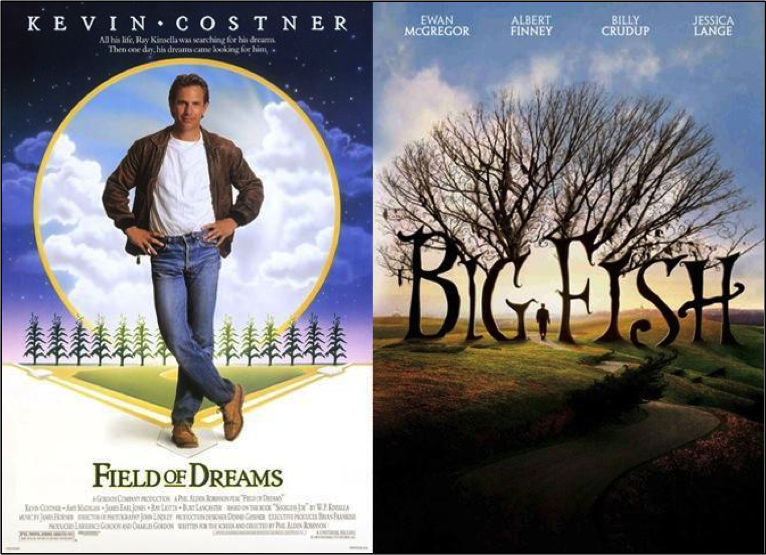
That’s what I had in mind from the start. The goal for the cover was to INSTANTLY communicate those qualities, while revealing that the book was for anxious workaholics.
I decided to do a photoshoot so I could make a few cover mockups myself. That way, I would be able to quickly see if my ideas were working or not.
Here are some of my mockups:
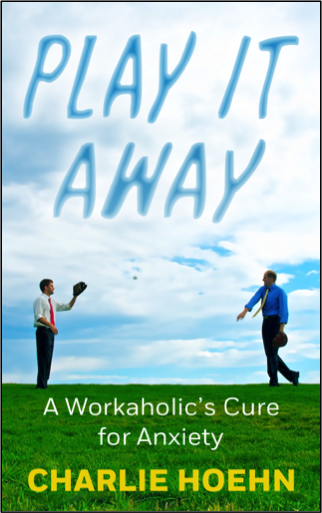
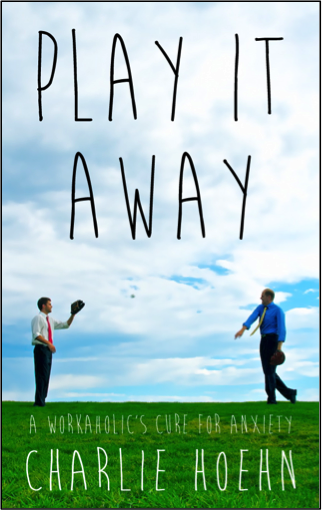

I handed the mockups over to my designer, who sent this back to me two hours later:

No one understands the spirit and meaning of the book better than the person who wrote it. All authors should try to envision the exact cover they want (and how it will look when listed on Amazon), then sketch it out on paper or create a mockup in Photoshop.
Even if your designs are terrible drawings on a napkin, you can hire a great designer on Behance or Elance for a couple hundred bucks who can turn your ideas into something beautiful.
#3 – Description / Back cover
The description of your book is what gets people to BUY the book. It’s the squeeze page, the sales pitch, that converts an interested prospect into a paid customer. You need to invest a lot of time nailing this part because it’s really important. As Tim said in this post:
I’m astonished when authors spend 1-10 years writing a book and then let a junior copyeditor at their publisher write their backcover… You should spend at least 10x as much time on backcover/flap/”description” copy as you would on an average internal page.
I took my back cover pretty damn seriously. I didn’t want to just write whatever I thought sounded good, so I surveyed over 130 people to get their thoughts. I asked them the following questions:
- In your own words, describe what your anxiety feels like. How does it manifest itself? In what situations does it arise?
- What solutions have you tried in the past to manage your anxiety? What’s worked, and what didn’t work? How did you feel before and after trying these solutions?
- What is the biggest obstacle that’s preventing you from getting your anxiety under control?
- What would it mean to you if you got your anxiety under control? How would things change? What would your life look like?
I really wanted to get inside my readers’ heads, just to make sure I had a deep understanding of what they most wanted (this is a value I learned while working with Ramit Sethi). My readers’ answers heavily shaped the first half of my book’s description:
Do you live in constant fear?
Do you worry that something terrible is about to happen?
Do you have trouble breathing, relaxing, and sleeping?
Do you think you’re losing control, and that you’re going to die?
Are you trapped in your own personal hell, and don’t know how to get out?
I’ve been there, and I know what it’s like. Shallow breathing, tension in the gut, chest pains, rapid heartbeat… Every moment is exhausting, crushing, and painful. Anxiety destroys your confidence, your productivity, your relationships, and your ability to enjoy life. The worst part is the obsessive hopelessness – the gnawing sense that you’ll never feel happy again.
Fear no more. You can put an end to your suffering. You can start living again. And it’s not as hard as you think…
The first sentence of my book’s description contains the words “constant fear,” because that was the most common phrase people gave in the survey. For the rest of the description, I didn’t copy my readers’ answers verbatim, but I borrowed bits and pieces of what they wrote.
Here’s the second half of my description, which encouraged people to open the book and start reading RIGHT NOW:
Play It Away covers my entire journey: what caused my anxiety, the “A-ha!” moment that lead to my cure and how I got my life back. In this book, you’ll learn:
- The key breakthrough that allowed me to enjoy life again (page 27)
- My step-by-step plan for healing anxiety without drugs (page 47)
- How I turned non-stop worrying into background noise (page 95)
- My unusual technique for stopping panic attacks (page 100)
- Why “anchors” fuel anxiety, and how to remove them (page 49)
- How I finally started sleeping well again (page 85)
- Three common nutrient deficiencies that amplify anxiety (page 114)
- How to boost productivity and have guilt-free fun (page 70)
Actual Reader Feedback
“I can’t explain how nice it was to know that someone finally understood AND has solutions to change those feelings… The answers I’ve been searching for and asking doctors about for almost the last 3 years, you were able to summarize in one book.”
“I’m a developer who’s been struggling with burnout for a long time. I read your book in a single sitting. The only feedback I’ve got is THANK YOU! I’m so appreciative of your words because they validate what I’ve been feeling deep down all this time.”
You might be surprised or disappointed that I copied other people’s words, instead of coming up with everything on my own. And I get it — it’s seems like a weird thing to do. But the truth is that — even though I’d experienced intense anxiety myself — I wasn’t totally sure how other people thought about their own anxiety, or what it would mean to them to get those feelings under control. So I asked them, just to be sure I was creating something they’d actually want.
That’s the purpose of the back cover — to convince the prospective reader that this book was MADE FOR THEM, and that it’s going to deliver an amazing experience that will change their life. That’s how you get people to buy your book, which is required if you want to hit #1.
# # #
I hope you’re with me so far, and can see the value in architecting your book beforehand.
After you have the title, cover, and description of your book mapped out, THEN you can start writing.
Step 3. Bake the marketing into your book
Your aim is to create a marketable book. In order to do that, you — the author — should try to bake marketing elements into your book that facilitate word-of-mouth and ongoing sales.
Here are a few examples:
- Capture leads. If someone buys your book, they’ll probably be receptive to buying other stuff you come out with later on. But how are you going to reach them unless you have their email address? You should find a way to collect their contact information at some point in the book. For instance, people looking at your sample chapter on Amazon are able to read the first 10% of the book, but might not make the purchase. Why not give them an offer in the sample chapter that
sends them to a
landing page which collects their email address? Case in point, from my book: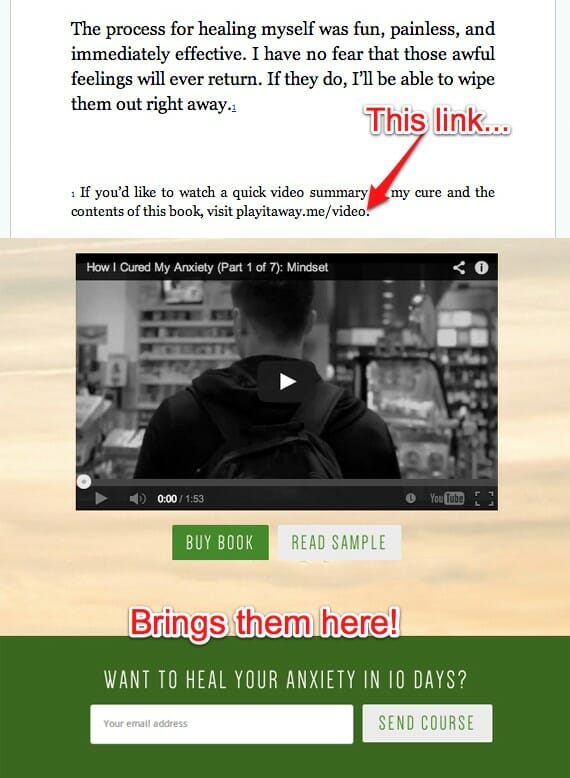
- Beta readers. Have between 5 and 40 ideal readers give you brutal feedback on an early draft of your book (don’t ask family or friends to do this, they’ll be too soft on you). Send them a PDF of your book. Have them read it in Preview (Mac application) and use the annotation feature to leave candid notes. Ask each of these readers to give you notes on the following:
- When they get bored, stop reading, and check Facebook,
- When they roll their eyes,
- Whey they want to share a quote or section with a friend,
- When they laugh, get excited, or feel hooked,
- Which sections they loved, and which ones they hated.
This is EASILY one of the best things you can do to improve your book’s odds of hitting #1. The feedback you’ll get from your beta readers will sting, but it’s totally worth it because they are saving you from countless negative reviews on Amazon. They are forcing you to make a great book, and catching all of the things that currently suck. And trust me, a lot of what you’ve written in the early drafts will suck. You need beta readers to prevent you from releasing garbage.
After they’ve sent you their notes, hop on the phone with them. Talk to them, offer to help with something they’re struggling with. Get to know your readers and form a deeper bond. Because when your book is finally up on Amazon, you’ll need to get some positive reviews in a hurry. And guess who’s going to love helping you when that time comes? Your beta readers.
- Chapters are blog posts. Think about how your writing can be packaged online and easily shared. In the early stages of creating the Table of Contents for The 4-Hour Body, before he’d written anything else for the book, Tim Ferriss was coming up with chapter titles based on what he thought would make great guest blog post headlines.
- Quotes. Readers love to put quotes on Twitter and Facebook. Equip them with little bites of wisdom from your book that they can easily share with their friends.
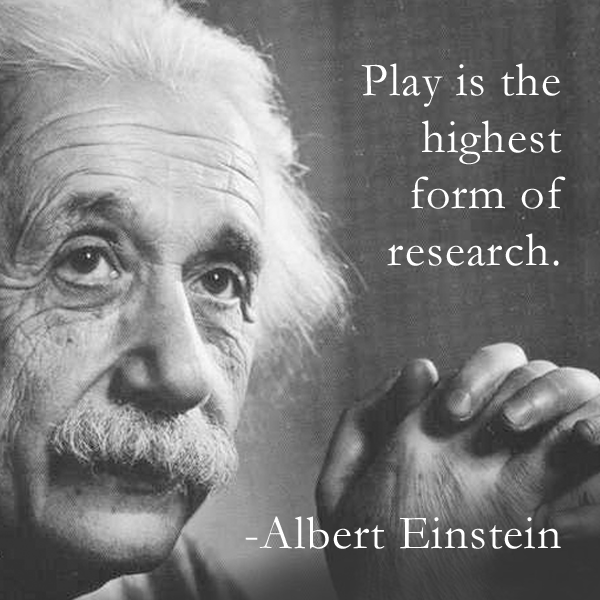

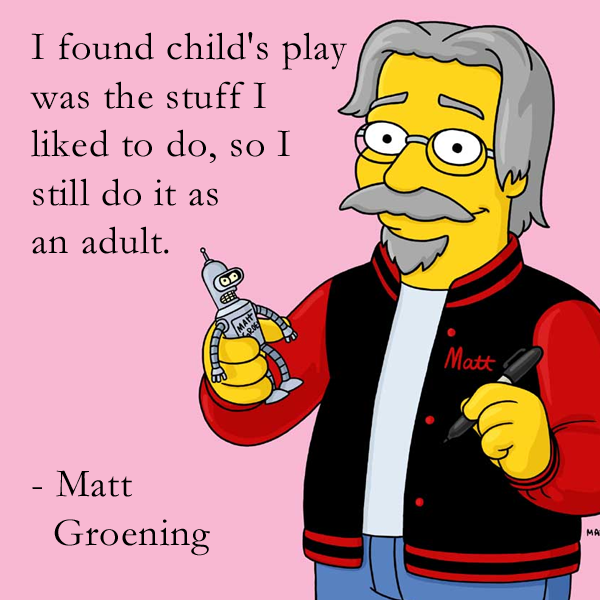
- Call-to-action to share, review, or buy more. I have two main calls to action at the end of my book. The first is to call up a friend, ask them to play, then ask them to “play it forward” (sounds a little corny, but it works when you read it in the book). In other words, I’m asking them to do something fun while indirectly having a conversation about the book with their friend. The word-of-mouth is baked in. The second CTA comes immediately after the final chapter:
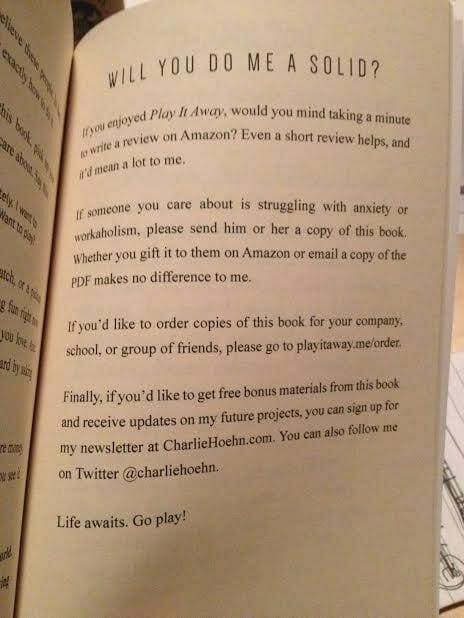
If you want to learn more about baking marketing into your book, check out these two articles:
Step 4. Get influencers and mavens to read your book
Compile a list of your “Dream Team” readers: the people who your work was made for. These are the select few who you’d love to read your book, and want to have them recommend it to their friends / fans.
You’re going to be giving away digital copies of your book — for free — to every single of them. You have to do it, because it’s the only way your book will have a fanbase the day it gets released.
This tactic has worked really well for Tim. For the release of The 4-Hour Chef, he did a promotion where he released a digital bundle on Bittorrent — a site with 170 million users — which contained a section of 4HC, deleted chapters, and bonus video content. Bittorrent promoted the bundle, over 1 million users downloaded it in the first month — that’s a lot of free quality marketing (and many books sold).

The 4HC promo is a unique case with exceptional results, but the principle can be used by any author — give your book away for free to people who are going to talk about it.
My dream team consisted of: reddit.com/r/anxiety, blogs and podcasts catering to people with mental issues, programmers and tech entrepreneurs, academic experts on play, and online friends of mine who wanted to help me (hey, thanks Noah!) Once I had my list, I reached out to everyone, and gave them my book for free.
I asked several dozen influencers if they wanted my book. More than 90% said yes.
You might think, “It’s unfair! You know all the famous internet people!”
Do you think I was born with connections? Do you think I paid for those relationships?
Of course not. I BUILT those relationships from the ground up, several years prior to writing a book.
With Tim, Tucker, and Ramit — I reached out through email, offered to help them for free, and eventually became friends with them. Then they introduced / referred me to their networks (I met Noah through Ramit). I developed actual relationships with most of the people I met. Some are just loose connections, but most are friends that I’ve had dinner and drinks and crazy experiences with many times over the years.
Here’s the thing — I never expect anything from ANYONE. I don’t expect my friends to read the book, nor do I expect them to help me in any way. I just try to get them interested in my book by making a personal offer that’s extremely difficult to refuse.
Here’s how I phrase my offer, depending on the strength of my relationship with that person:
Email to: Loose Connection
Hey [nice person that I like but don’t know well]- My first book is coming out next month, and I’d love to send it your way. Not asking for any favors, don’t worry — this is a free gift. I think you’ll like it because I talk about managing anxiety and workaholism with play.
Do you prefer Kindle or PDF? Let me know, or feel free to pass — no hard feelings, I promise 🙂 I hope you’re well!
See what I did there? Instead of asking if they wanted the book, I asked what format they preferred. The question assumes they’ve already said “yes” (A or B?), while immediately absolving them of any guilt if they’re not interested (“feel free to pass — no hard feelings”).
This is critical for busy people, who receive hundreds of emails a day. It’s short, sweet, and makes it easy for them to quickly respond (“Kindle, please!”)
Email to: Influencer I’ve never met
Hi [author I admire],
I’m the author of the book Play It Away: A Workaholic’s Cure for Anxiety. The reason I’m emailing is because I’m an enormous fan of your writing, and I would love to give you a copy of my book. It’s based on a popular article I wrote about play, called How I Cured My Anxiety (#2 search result on Google for “cure anxiety,” underneath Oprah.com). The article has already helped more than 100,000 anxiety sufferers rediscover the importance of play, and I’m hoping my book will help
many more.
Would you prefer Kindle or a PDF of my book? Just let me know and I’ll be happy to send it to you. If not, no hard feelings — I appreciate you taking the time to read this email, and for sharing such a helpful message with the world 🙂
All the best,
Charlie
A few keys about this email:
- The first paragraph shows my admiration for their work, and establishes me as a fellow expert in terms they’ll appreciate.
- The second paragraph makes it easy for them to respond to the email (A or B?), absolves them of guilt if they have to ignore me, and thanks them.
Don’t frame your offer in a way that leaves too much room to say “No.” Assume they’ll want your book by giving them more than one choice.
Reddit: I posted a few helpful threads in the /r/anxiety forum, including one which said I was working on a book. Very soon, I’ll be doing an exclusive giveaway of my book for 250 of /r/anxiety members. I’ll host the giveaway on Gumroad, which will automatically limit the number of downloads to the first 250 people.
Pirating sites: Don’t be afraid of your book being pirated. If that happens, it actually validates that your work is good (no one pirates awful content). Think of it as free advertising. Seriously, it costs you NOTHING to distribute your book digitally, so what are you worried about? If your book is really good, people will pay for it or share it. If they don’t like your book, they won’t buy it and you’re in the exact same position as you were before. No harm done!
Paolo Coelho — the Brazilian author of The Alchemist, and many other books that have sold millions of copies worldwide — is such a big believer in giving away his books for free that he set up his own piracy site (called Pirate Coelho).
Seth Godin gained much of his following by releasing his book The Idea Virus online, for free. It was downloaded more than 1 million times. Hell, even I gave away my first book (Recession Proof Graduate) for free. That book was read by more than 150,000 people, and it’s the reason I have a 5,000 sub email list.
Step 5. Set up your Marketing Machines
Alright, now let’s get to the good stuff! The marketing machines you set up will automatically increase your sales indefinitely. Having marketing machines is critical, because they’re what make it possible for you to actually turn your writing hobby into a living.
Here are some of the machines you’ll want to set up:
- Tracking. I use App Annie, which automatically sends me a beautiful snapshot report of my daily ebook sales. For tracking clicks, I use Bit.ly (just add a “+” at the end of any Bit.ly URL to see how many times it’s been clicked).
- Continual stream of Amazon reviews. Your Amazon reviews are so most important to your book’s success, arguably more than anything else. As long as your reviews keep going up, your product is being validated. You’re getting more and more social proof that says “Yes, this is a great purchase for you to make, and everyone else is buying it already.” Amazon reviews determine the book’s conversion to sales (that’s why I hate pre-order campaigns; there are no reviews posted so
conversion is much
lower).
Here’s how my book did in its first week of reviews: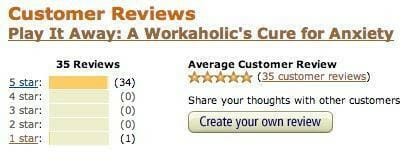
You might be thinking, “Gee, 34 five-star ratings on Amazon, and ONE negative review. Typical online marketer / scammer behavior. I knew that Hoehn was rotten!”
Believe me, I get it. I’m always suspicious of anything with a skewed record.
The truth is that I just asked all 30 of my Beta Readers to leave a review. I even publicly stated why I was doing this two months before release:
“These people now have a vested interest in seeing the book succeed, and I’ll encourage them to leave a thoughtful Amazon review when it’s up for sale.”
I asked them to leave an HONEST review. I never asked anyone to leave a 5-star, or even a positive review. That’s because there can be major backlash if the review system is gamed. And even when it’s not gamed, people still suspect authors of foul play. Case in point, my 1-star review:

We got a fair amount of flak when we launched The 4-Hour Body. Some people assumed we outsourced Amazon reviews because we had 200+ of them within 24 hours of its release.
The reality? Tim just gave away hundreds of advance copies to blog readers. On launch day, he sent out a link to the Amazon page and asked these early readers to leave a review. Simple as that.
Getting a foundation of positive Amazon reviews doesn’t have to be manipulative or slimey at all. In fact, it should be harmonious. I never had to force anyone to leave a review; I just asked. Here’s how…
Email #1 — February 2, 2014
Subject: BOOK!
Hey [Beta reader],
The book is DONE! I’ve attached the PDF to this email — you’re mentioned in the acknowledgments at the end 🙂
It’s also up for sale here, too: https://gumroad.com/l/playitaway
I haven’t officially announced the book yet (still finishing up paperback + other formats), but I wanted to send this your way so you can see how far it’s come since that first draft.
Thank you SO MUCH again for all of your help during the early stages. It meant a lot to me, and you made a big impact on how the book ultimately turned out.
Anyway, that’s it for now. Have a great weekend, and I hope you’re well!
Charlie
Email #2 — February 7, 2014
Subject: One more thing…
Hey [Beta reader],
The book is finally up for sale on Amazon: https://amzn.to/1dJ05eP
Would you be willing to leave a review? It’d really help a ton. The first popular review of this book is probably going to be THE review that people will see for years to come. If you have time to write one today, that’d be great. If not, no worries — I really appreciate your help during the making of the book 🙂
Charlie
P.S. Great reviews usually consist of: what the reader learned, how it affected their life (short and long term), and what they’d say to someone who was thinking about reading it.
Notice the post-script, where I tell them HOW to leave a review.
- Email list. I’m setting up a 10-day “Heal Your Anxiety” course, which will be deployed through a drip campaign I set up in MailChimp. When people sign up, they’re going to get several emails with free content from the book, and a link at the end of each email reminding them to buy it. I love this because I only have to set up this marketing machine once, but it can be used forever to generate ongoing sales. In order to get people on this “Heal Your Anxiety in 10 Days”
list, I’m using
Instapage to set up a number of landing pages that collect email addresses. Here’s my template landing page, which I can easily customize depending on the offer and context:
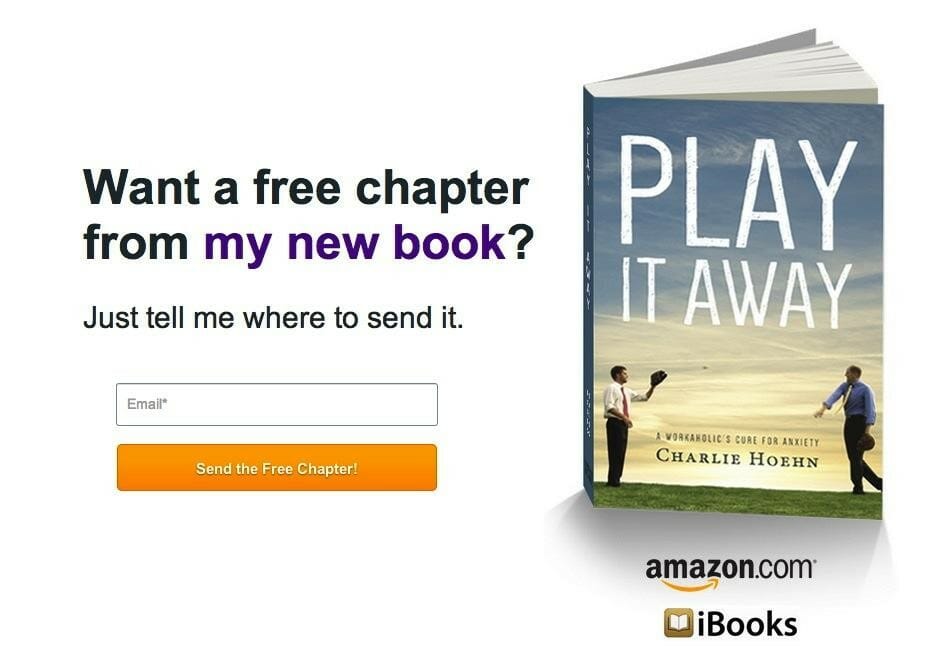
- Evergreen content. Which parts of your book will people still love and want to discover five years from now? Take that content, and repackage it for a variety of different mediums: blogs (highly visual), Pinterest (visual quotes), Youtube (quality video), Slideshare… Then direct all that traffic to your landing pages, or Amazon. And man oh man, I can’t begin to tell you how great Slideshare is for promoting books… Check out how Ryan Holiday uses it to market his work:
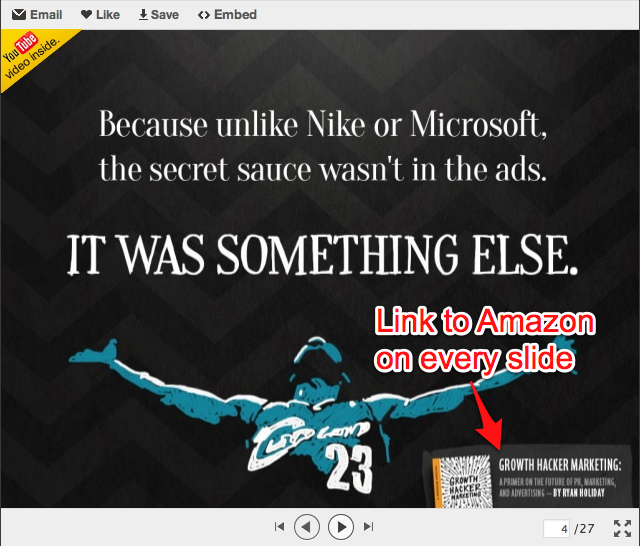
Several of Ryan’s Slideshare have racked up more than 200,000+ views.
I’ll be making a bunch of Slideshares to promote my book, as well. Here’s a glimpse at the first one:
[Quick note on book trailers — if your trailer is a one-time-use promotional piece that your target reader doesn’t really care about, why bother? You should make one (or several) book trailers that will be in-demand and worth watching for the next 10 years. Also, DON’T sell the book in your trailer — sell the messenger. People want to form a relationship with the author first. That’s why I made a 7-video series for my book called How I cured my anxiety, which shows prospective readers the type of person I am. These videos will also hopefully rank highly on Youtube for the search “cure anxiety.”]
- Price tiers. Remember what I said about making people choose, rather than giving them the option to say “No”? That’s what you should do with your book. Come up with packages at multiple price points. On a basic level, you could offer the Kindle ebook (cheapest), a paperback (middle), and a premium book bundle (most expensive). The bundle can contain video and audio files, PDFs of bonus chapters, and anything else that’s super valuable which can be distributed digitally
through Gumroad. I
offered three price tiers for my book, and will eventually have a premium offer that costs $100+.
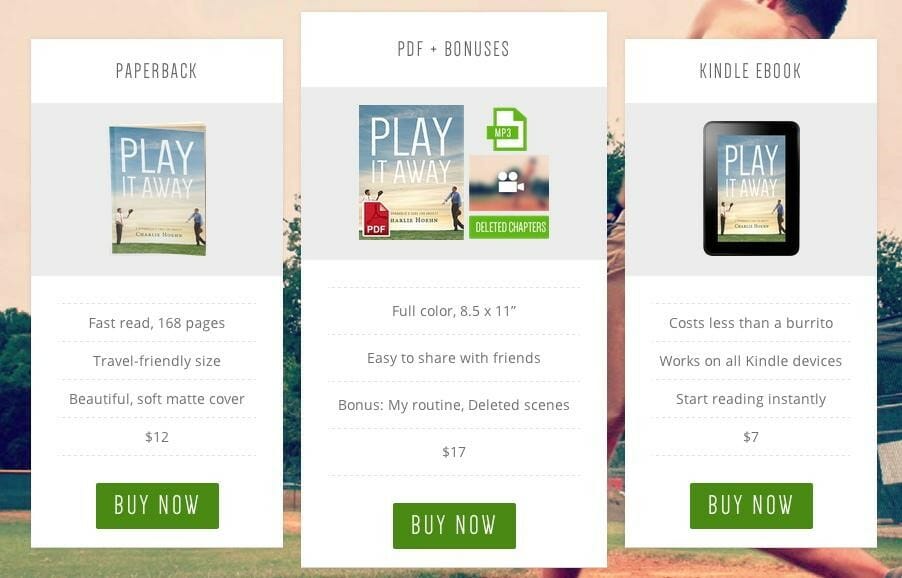
- The Land Rush Technique (Bulk orders). The second time I got to market a book was when the expanded version of The 4-Hour Workweek came out. Tim said some of the media he had planned fell through, and we needed to come up with a Plan B. What we came up with not only landed The 4HWW at #4 on the New York Times bestseller list, it also laid the groundwork for a massively effective promotion we did the following year. This technique (called “The Land Rush”) basically means
incentivizing bulk
purchases in a short period of time. Here’s what we did for The 4-Hour Workweek:
Buy 1 copy – Participate in a 2-hour live Q&A with me on 12/22. It will focus at least 50% new material. No email receipt needed, but familiarity with book will be important.
Buy 4 Copies – Free signed, advanced copy of Becoming Superhuman [note: this was the decoy title for 4-Hour Body] when it comes out later in 2010. It will be one of Random House’s biggest releases, and you will see it even before most media. E-mail Amazon receipt to bonus@fourhourworkweek.com with subject line “4 copies”.
Buy 10 Copies – The above signed copy of Becoming Superhuman and 1 full year ($120) of DropBox’s 50GB back-up and synching service for free, which I use and which appears in the book. This makes the ten copies, in effect, free. E-mail Amazon receipt to bonus@fourhourworkweek.com with subject line “10 copies”
Buy 100 Copies (limit 20 spots) – Buy 100 copies here and get all of the above (Superhuman, 1-year DropBox), as well as a VIP invitation to a private bash I will be throwing in San Francisco on Friday, Feb 26th. Dine and hang out with me and my best friends from tech and all over the world.
Buy 1,000 Copies (limit 1 spot) – Buy 1,000 copies here and get all of the above (Superhuman, 1-year DropBox, VIP dine/party) and a full day of consulting with me on whatever topics you desire. I will fly you from anywhere in the world to San Francisco, where I will cover all meals and entertainment for 24 hours. One friend or business partner is welcome to attend if they cover their own travel and hotel.
That promotion worked really well, so we did it again the following year. Only this time, we went BIG.
Tim managed to put together book bundles that contained more than $4,000,000 in bonus gifts. And the second time we employed the Land Rush technique, it resulted in 15,000 copies of The 4-Hour Body sold in less than 3 days hours. Dayum!
All of the packages were broken up into Slideshares, so we could easily track which packages were being viewed the most, and which ones were converting. We had packages for so many levels: 1 book, 3 books, 5 books, 10 books, 30 books, 100 books, 300 books, 1,000 books, 5,000 books, and even 10,000 books.
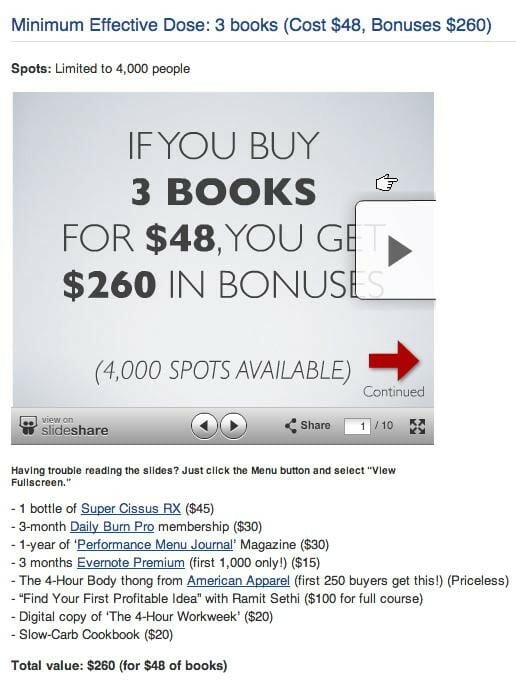
For orders that were 1-30 copies, we had readers email us their Amazon receipts, then we fulfilled their bonus gifts.
For orders that were between 30 and 300 copies, we had readers purchase a ticket on Eventbrite. Then we had CEO-Read ship the books to them, and the companies we partnered with fulfilled their bonus gifts.
For orders that were 1,000+ copies, we had people fill out an application. We needed to make sure those people not only had the money (and weren’t in debt), but were also normal and well-adjusted people who would be fun to hang out with.
Handling logistics for 15,000 orders was crazy, but our biggest regret was that we offered TOO many choices. People were confused about what to buy. We should have just done 1 book, 3 books, 10 books, 30 books, 300 books, and 1,000 books.
Still, it was a huge success. My favorite part (for reasons I don’t fully understand) was the fact that we had a countdown clock running on Tim’s blog to get people off the fence: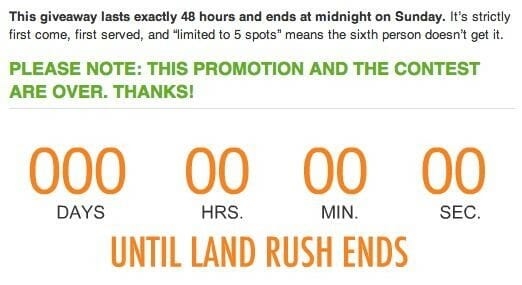
Again, you can use this technique for your book during your launch to get a rush of books sold all in 24 hours. Just come up with a few packages you want to offer (1 book, 3 book, 30 books), then put together some awesome DIGITAL bonus gifts for each tier (digital so you don’t have to mess with shipping / handling costs).
Or you can offer your book in bulk on an ongoing basis, just so people see that option to buy large orders. At the end of my book, I say “If you’d like to order copies of this book for your company, school, or group of friends, please go to playitaway.me/order.” That page takes them to a form, where they can tell me about who the books are being given to, and whether they’d be interested in having me speak to that group.

This marketing machine facilitates transactions that get my book in the hands of large audiences, and the form encourages them to hire me as a paid speaker.
- Give your best content away on other sites. This is the part a lot of authors struggle with — promoting themselves. Again, you’re 100% in charge of marketing your work. People aren’t going to come to you asking to promote; you have to go to them. Even Seth Godin, who writes the #1 business blog on the internet, spends a ton of time promoting on other people’s sites whenever he releases a book. When he came out with Linchpin, he did interviews, guest posts, and online
promotions on 58
different websites!
Charles Duhigg, the author of the bestseller The Power of Habit, originally got his toe-hold by releasing an excerpt from his book that went viral. It was a case study in how Target used big data to determine which customers are pregnant and the privacy issues it’s encountered on the way.
You should aim to do at least 5-10 promotional pieces on low churn sites (unlike places like Lifehacker, which pumps out dozens of articles a day and have zero influence over people’s lives). Ideally, you want to have some sort of personal connection with the people running these sites (they know, like, and want to help you). Even active niche forums that you’ve participated in will work — just start an interesting conversation that will get people reading, then discretely plug your book in
there.
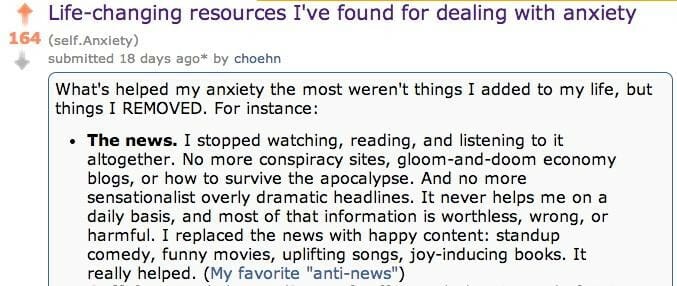
In order to get the biggest bang for your buck, you’ll want to schedule all of your guest posts and interviews 6-8 weeks in advance, and request all of them to go live on the same day (same week works too). Only do guest posts and interviews for outlets where you know that (A) they do great work, (B) you can give them amazing content, (C) your ideal readers are on the receiving end of that content, and (D) your work will likely convert or be shared. Just think about how long and detailed
this guest post is — pretty crazy, right? Well I know that if I do an amazing job, a lot of you guys will want to share this post or buy my book, so I put a lot of effort into it. Same thing I did for the post I wrote on Tim’s blog.
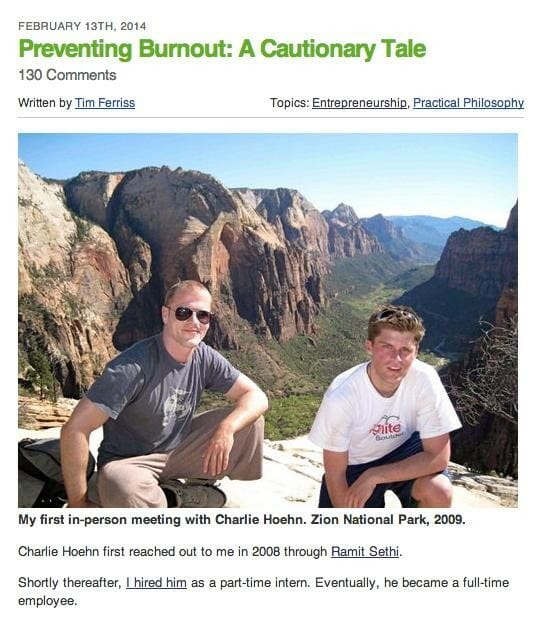
9. Podcasts. My current favorite medium for marketing books is podcasts, simply because they’re so intimate. You get to have an honest conversation that people will listen to for an hour or more! It’s simply impossible for the listener to not form a relationship with you, and if you are interesting / likeable, they’ll probably buy your book. The most recent podcasts I did were the Self-Publishing Podcast, The Overwhelmed Brain, and School of Greatness: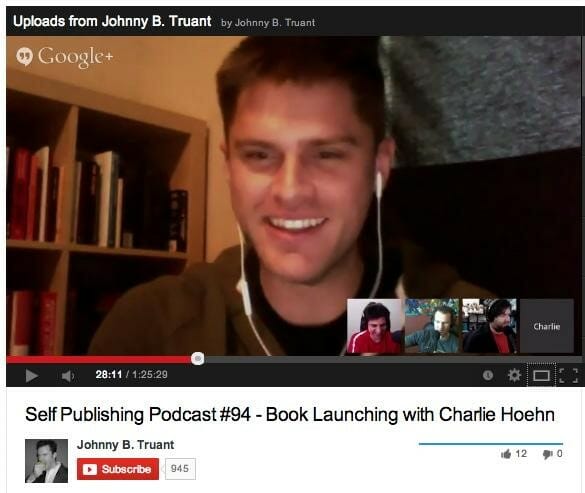
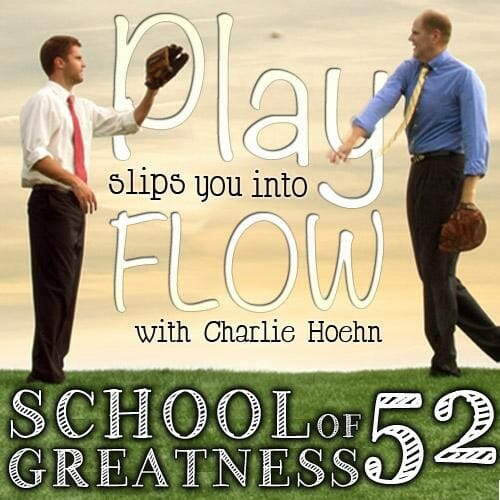
Here’s the email I was using to set up podcast interviews:
SUBJECT: For [name]: Message from Charlie Hoehn, author of Play It Away: A Workaholic’s Cure for Anxiety
Hi [name],
My name is Charlie Hoehn, and I’m the author of Play It Away: A Workaholic’s Cure for Anxiety. The reason I’m emailing is because I’m a big fan of [your podcast], and wanted to see if you’d like to have me as a guest on the show. Here are a few notes on why I think I’d make a good guest:
- Wrote the post How I Cured My Anxiety, the #2 search result on Google for “cure anxiety” (#1 is Oprah.com)
- Recently featured on NPR’s TED Radio hour, discussing career-related anxiety (my 8-minute segment)
- Popular guest on other podcasts (Unmistakeable Creative, Lewis Howes)
My post has helped more than 100,000 anxiety sufferers over the past year, and I’d love to share my story with your audience.
Would having me on as a guest be of interest? If so, I’d be happy to give your listeners an exclusive offer on my upcoming book, as well.
Of course, if you’d rather pass or can’t do it now, no worries! Either way, thanks for your time and keep doing what you’re doing.
Charlie
P.S. I’d love to send you a copy of my book. Do you prefer Kindle or PDF?
A quick note on TV shows, radio, and other traditional media — don’t approach them first. They’re way too busy and they’ll ignore you. First, you want to set the narrative online in places you can have more control over. Once you have a few great links talking about you and your book, then you can try sending them up to bigger media outlets from *ahem* non-biased email addresses (i.e. anonymous tips). That way, you can show them that they’re missing out on a big story.
- Price cuts. If you’re selling ebooks, you have to play around with the price. James Altucher has sold more than 100,000 copies of his self-published book Choose Yourself in less than one year. He messes with the price of his Kindle version all the time. One day it’s $5.99, the next day it’s $0.99. When you drop the price, a bunch of bot sites detect the drop and price shoppers rush over to your Amazon page to make an impulse purchase, and your book climbs the charts.
(Note: Once the price
goes above $3.99, people start thinking twice before buying your book.) When Amazon decided to feature the book Food Inc. as a special deal for $1.49, the ebook sold more than 14,000 copies in just 48 hours. The previous day’s sales? Nine copies.
- Offline distribution. In 2013, McDonald’s became the biggest book distributor in the United Kingdom. In one year, they gave away more than 15 million children’s books in their Happy Meals. Lesson? Anywhere can be a bookstore. It’s just a matter of finding your potential customers in the proper context. Why not speak at conferences, seminars, and events where your target audience is hanging out?

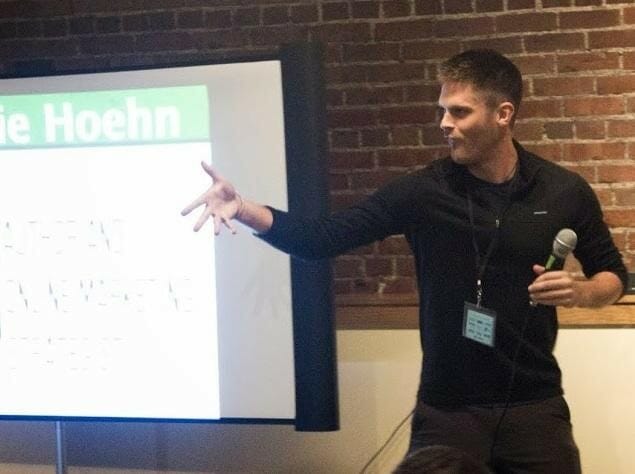
Why not do giveaways, or record the speech and post it online? All of it adds up, slowly but surely. You can also partner with physical outlets where your ideal reader might be. I haven’t done this yet, but I want my book to be in locations where anxious people are: Whole Foods (by the supplements), airports (lots of people panic on planes), yoga studios (trying to find relief), college campuses (lots of anxious students), and in therapists’ offices.
- Publish more books. Your final marketing machine — and safest bet for turning your writing hobby into a living — is to keep publishing more books on Amazon. Write faster, edit faster, publish faster. Rinse and repeat. The more work you make, the better you’ll get at your craft and the more likely you’ll end up making something great. All of your books will link up on Kindle (“Read more works from this author”) and they’ll cross-promote each other. If one of your books
takes off, it will
help all the others.
# # #
If you take anything away from this post, I hope it’s this — a big launch is NOT a long-term strategy.
Making a great book that people want to buy, and having marketing machines set up to encourage more sales, is what will ultimately lead to your book’s success. That’s the path to hitting #1.
I’ve seen it over and over. It’s not magic; it just takes a lot of hard work.
I hope you get a chance to check out my book. If you’re an anxious person who has trouble disconnecting from work, it could save your life.
—————————————————————–
Re-enter Noah
Most of 2012 and the beginning of 2013 were a low time for me. I tried many things like naked yoga, traveling alone around India, love workshops, business coaches, new diets, etc… to feel better. Eventually with trying many things I was able to start feeling better. Charlie’s new book is almost the same template I used when making myself feel awesome.
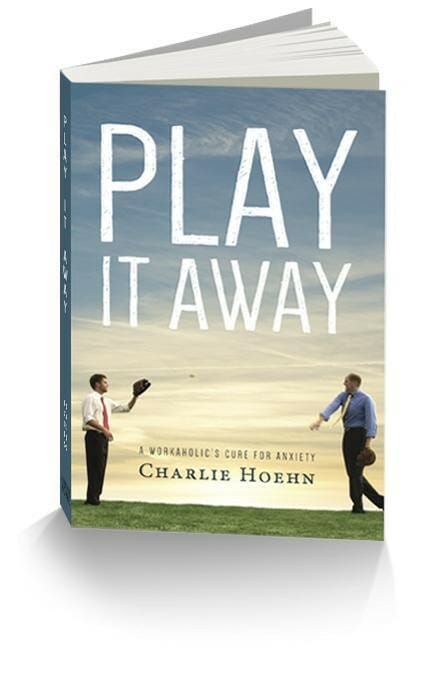
For my birthday I’m personally buying twenty-five OkDork readers a copy of Charlie’s book. Leave a comment with the latest activity you like to do (rollerblading, cleaning, reading, etc..) that takes away your anxiety.
25 people will get the book mailed to them!
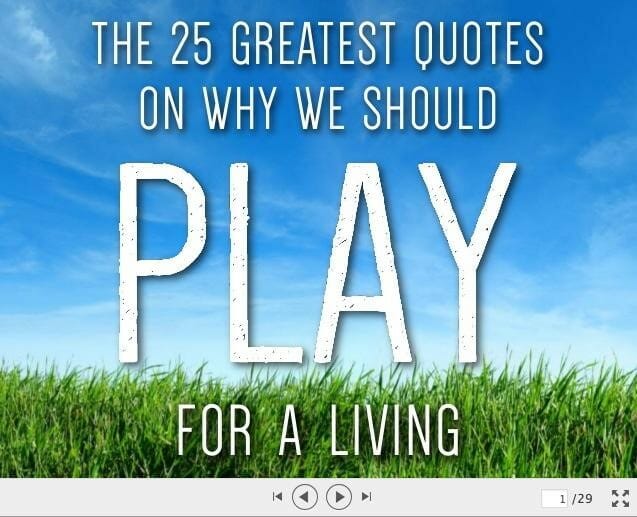

149 responses to “Book Marketing 101: How to Hit #1 on Amazon’s Bestseller List”
Talking with Friends! Takes my anxiety away.
Wow! I’M currently publishing a book on a mental health mess I went through during the Pandemic and How that mess got cleaned up. This article is amazing and so much insight. Thank you!
One of the BEST articles on publishing I’ve experienced. My favourite activity? Dancing like a mad person to the best 80’s music!
What a fabulous article. I’ve been in the publishing business for a while and read mountains of advice about writing, publishing, launching, etc.. This article is fabulous and offered marketing ideas that can benefit every writer.
I was sitting at my laptop, tonight in fact, watching my book sales go up after seven years of perfectionist, okay, OCD editing. I found myself terrified. The panic of “what now?” As an unknown with zero marketing skills I began throwing money at Facebook and Instagram ads and reaching out to people in my circle like a mad woman, all to keep the momentum. All of this with a pit I my belly, “I have no clue what I’m doing!”
Then I found this blog. This was absolutely an invaluable and lovely read, not to mention timely. I’ve needed straight forward, honest self publishing tips for years. No one has quite hit the nail on the head like this!
After taking down the tips you’ve provided, hell a road map really, I feel a bit calmer. Perhaps I could stand to read your book on dealing with anxiety too! Thank you, from soul truly, thank you. ?
SA Geary
Walking
I’m a self-published fiction author who released my first book on April 30, 2020, during the on-set of the Pandemic. If I had only been aware of the “nuggets” you share in this post there are no doubts sales of the novel would have taken a much more positive turn. My follow-up novel is being prepared to launch this summer in late June or early July and I will certainly be implementing tactics from “my new roadmap.”
i wrote the tragedy of coins. but it’s actually doing better as an audiobook, so putting up the audiobook of yr book is better.
You opened my eyes to the work required to become successful as an author. Your article is so incisive, comprehensive and illuminating and I am truly grateful that you have shared this so generously.
I am writing a book on sleep and I was looking to get others to promote it and make it successful. You showed me how presumptuous I was and opened my eyes to the work that I need to do before and after writing the book.
Thank you from the bottom of my heart. I shall follow your tips relentlessly.
Thank you for this information! “How to Hit #1 on Amazon’s Bestseller List”
You can also post your used books/textbooks in: https://torpage.com
please accept thanks
I dance away my troubles. Wanna dance with me?
While researching more about the different book marketing techniques, I stumbled on this information. The article was resourceful indeed.
Wow ? I enjoyed reading your tips and am about to put my first book an autobiography up for sale. Super scared about reviews and this will help me deal with the reality of taking charge of some of that. Thank you ? and have a wonderful day. Is there people who write reviews that can help me with this it sounds like I could use some more help going forward
Terrific! This article confirms nearly everything I’ve been teaching my students this month in my author boot camp. Well-written and packed with real-world insight. Great stuff.
This article is superb, I love it. I wish I had seen it before I wrote my book, however, most of your recommendations have been adhered already… its the additional ideas that are the cherry on the top – so thanks. Having said that I might not have started if I had been checking there is a market… The working title is: Tales from the Tunnels. It’s about my experiences over 40 years working underground all over the world. A series of blasts.
Wow, what a fantastic source of information! I struggle with my own book’s topic. It is a true crime memoir and I survived. You inspired me with these ideas. It goes on pre-order at the end of this month and I am going to work hard to implement as many of your strategies as possible, despite my – could make people uncomfortable – story.
Great information. Love your strategies.
Thank you for this! I didn’t even know what slideshare was! so much great, current info here. Really appreciate you. Oh! Activities: working out, dancing, and bad bowling!
What a fantastic article. And I will be buying this book for my fourteen-year-old daughter! My book Butterfly will be launched on Feb.28th and I now realize I have many more steps to take. Thank you ?
A brilliant post. I’ve made copious notes, and intend to bookmark this as well. Thank you.
Hello Noah: Thanks for the great ideas! I am implementing them with my new book Junga the Dancing Yeti and will recommend this informative and helpful article to other authors I publish.
Noah this was a fantastic article.. Just so many helpful tips insights and strategy.. Just loved it… I am going to implement a number of these to increase marketability of my recent book Thank you so much…
Love your suggestions. Plan to use them.
Very informative article. I’m a new author and I appreciate your advice. I will definitely share with others.
J. Connor
This is another awesome Orkdork post which I just shared with my members on afroentrepreneurs.com.
I’ve yet to launch my own amazon ebooks and so very glad that I stumbled upon both yours and Scott Britton’s articles which will help immensely.
Thanks guys.
Great article! I shared it with another author.
I simply loved this article and all of its content, because it had tones of valuable information pertinent to my 27th Year of this book writing journey!!!!
Thank you,
Natacha P.
So much great information! Thanks for sharing.
Lot’s of useful advice here and delivered in a pleasant tone. Thank you for that.
The statement about dropping a book’s price to 99 cents and then raising it back to $3.99, then going back to 99 cents, made me wonder if potential readers might find this annoying — especially those who pushed the button at $3.99 and then found it was on sale the next day.
So, do you think there is a logical limit on the number of times an author puts a book on super sale each year? I’d be interested in your take.
David Liscio — author of the Boston-based serial killer thriller Deadly Fare
This was one helluva post! In-depth and actionable! And was written 2 days after my book launch! I’m noticing that the work is done AFTER the book is written and launched because then you have to sell the darn thing! It’s definitely a lot of work like you said but it’s fun and I love it. Thank you for sharing your wisdom.
hey charlie, i’m so thankful to you for sharing such a helpful content. i was worried for 2 months now as to how i was going to self publish my debut novel and you made it quiet easier now. i can’t thank you enough for all your help. i just wanted to ask you where can we find the beta readers? thank you so much. lots of love your way, god bless.
Hot yoga & writing (not at the same time)
This was super helpful – thanks man!
I love to sew, I can focus on the colors and design and forget my stress.
Hi Noah,
I am almost three years overdue, so I could wish belated birthday wishes instead or Happy Birthday in advance since there are literally nine days to February 17, 2017 🙂
I just want to say massive THANK YOU for this article, it is so full of valuable information and practical actionable and easy to understand strategies that a complete newbie author and self-publisher like myself can implement now. I have just written a book about How to Reinvent Yourself after Divorce and just doing the finishing touches regarding my cover etc before uploading on Amazon. I was completely lost and overwhelmed re my next steps and I have my book launch on the 16th of March.
I am going to read this again with avid attention and highlight the stuff I am able to do on my own. I love the info you recommneded we should put at the end of our books to attract bulk buys for groups and organisations and to encourage speaking gigs. I am definitely putting that in my book….my type setter will kill me though…yet another addition 🙂
Like the psychologist, before me said in January, most experts do not share meaningful content that can help people get ahead for fear of competition etc, but Noah you have done so and I am eternally grateful. You have demonstrated immense integrity, authenticity, generosity and heart which shows you are a genuine giver who really wants to help and is committed to helping your audience be the best they can in their businesses.
Thank you and God Bless
I’m a psychologist and first time self-publisher of the self-help book: Heal Your Mind, Heal Your Life : A self-help book for Depression and Anxiety. I’ve read many articles on how to market my book and of all of them I found your article to be the most useful and extremely helpful. A lot of successful authors keep their secret formulas to themselves in fear of other competition. Thank you for not being one of those authors and for the valuable information you have provided me. Many of my clients always ask about books I can recommend which is what printed me to put 19 years of private practicing experience in my book and why I will also recommend yours.
Love playing piano — especially playing songs from musicals!